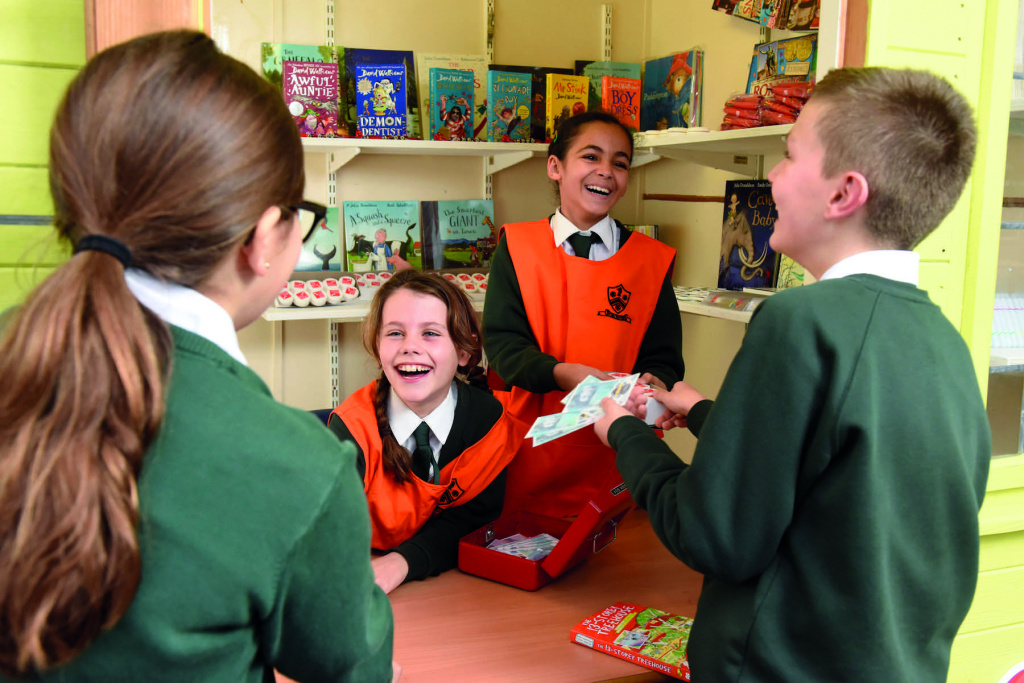
Worcesters Primary School is a three form entry school for children aged 3-11, and we currently have over 660 pupils on roll. As a school, we serve a culturally and linguistically diverse area, with over 35 per cent of pupils speaking English as an additional language and families demonstrating a variety of socioeconomic statuses. We believe that providing the best start in life for our pupils is paramount and we strive to promote this through our motto to ‘Be the best you can be!’.
In 2016, the school embarked upon a journey of change with regards to developing greater knowledge and understanding towards financial education. In a world of paying via plastic or mobile devices, we wanted our children to experience the real value of money and understand the importance of budgeting and spending wisely. We needed something that would enhance our mathematical curriculum, not replace or add to it. When we met with RedSTART, a charity dedicated to financial education among primary school children, we knew we had discovered our answer. Their goal is to educate young children about money and put them in charge of their finances. They believe, as we do, that educating the next generation in financial literacy is not a luxury, it’s an imperative.
Many of our young pupils lack an understanding of key financial education vocabulary and financial knowledge. Our aim was to equip them with financial concepts to ensure they had the awareness required to make well-educated decisions in later life. Consequently, the very first ‘Money Matters Week’ was born and the RedSTART learning sessions evolved. Fast forward to September 2018 and Worcesters Primary School has already completed its fourth Money Matters Week; created a whole school microeconomy, ‘The Oak Bank’, and begun the next stage of the journey to guarantee we have more financially literate children.
Money Matters
Once a term we run Money Matters Week. During this time, teachers focus solely upon delivering the money elements of the national curriculum, which we pair with our PSHE programme. We’re able to run these dedicated weeks as Money Matters workshops delivered by the RedSTART team, where the programmes are classroom-compatible, specifically designed and impact-measured to help teachers to teach, and young people to learn.
During these weeks we have visitors from the finance industry who talk about their careers, including Asha Khan from Citizens Advice Bureau, Robert Gardner from Redington and St. James Place, and Dr Paul E Boscott from Fairlife. We have also had representatives from the Citizens Advice Bureau visit to talk to our children about key financial concepts such as what a pay slip looks like, what our earnings are spent on and what debt is. We were happy that this was giving our children the knowledge of finance, but what lacked was the opportunity for them to apply the skills they had learned. This led to the creation of ‘The Oak Bank’.
Throughout the average school day, children earn virtual ‘Acorns’ by demonstrating one of the school’s six core values: self-responsibility, self-awareness, honesty, respect, resilience and equality. Acorns can be distributed by class teachers and support staff as well as members of the senior leadership team. Each child has their own online bank account where Acorns are deposited. Eventually these will be converted into ‘money’ which the children will be able to withdraw from the school bank and the money can then be spent in the shop.